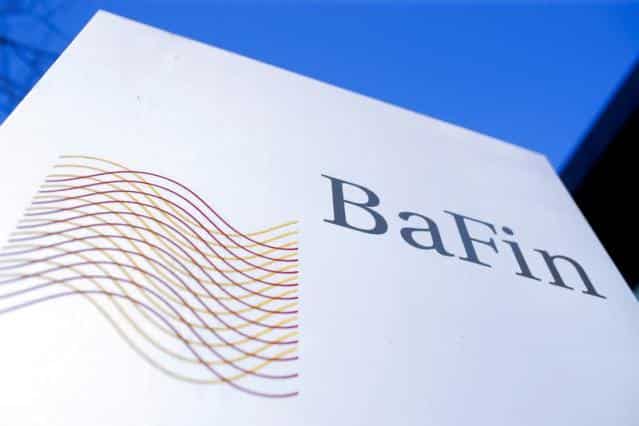Binance, the world’s largest cryptocurrency exchange, is under scrutiny from Germany’s financial regulator, BaFin (Federal Financial Supervisory Authority), for its recent launch of fractionalized stock tokens. The regulator warns that Binance could face a hefty fine of up to €5 million ($6 million) for issuing security tokens without providing the necessary investor prospectus. This development highlights the ongoing challenges exchanges face in navigating the complex regulatory landscapes as they attempt to bridge traditional financial markets with the burgeoning cryptocurrency space.
1. Binance’s Attempt to Bridge Traditional Markets and Cryptocurrency
1.1 Launch of Fractionalized Stock Tokens
In an effort to integrate traditional financial assets with the crypto ecosystem, Binance introduced fractionalized stock tokens on April 26. These tokens represent fractional shares of prominent companies such as MicroStrategy, Apple, and Microsoft. By offering these tokens, Binance aimed to provide crypto enthusiasts with the opportunity to invest in well-established stocks without the need for traditional brokerage accounts.
1.2 Expansion to Additional Stocks
Following the initial launch, Binance expanded its offerings to include tokens for Coinbase and Tesla, further diversifying its portfolio of fractionalized stock tokens. This move was intended to attract a broader user base by providing access to a wider range of high-profile companies, thereby enhancing the platform’s appeal to both crypto traders and traditional investors.
2. BaFin’s Warning and Regulatory Concerns
2.1 Failure to Provide Investor Prospectus
BaFin has raised concerns regarding Binance’s issuance of security tokens without the accompanying investor prospectus, a mandatory requirement under European Union Securities Law. The absence of this critical documentation means that investors may not have access to essential information about the securities they are purchasing, potentially exposing them to undue risks.
2.2 Potential €5 Million Fine
As a result of these regulatory breaches, Binance faces the possibility of a substantial fine of €5 million ($6 million). BaFin’s investigation suggests that Binance has violated securities laws by selling share tokens in Germany without fulfilling the necessary disclosure and documentation requirements.
2.3 Additional Regulatory Actions
BaFin has also expressed concerns that Binance may be selling share tokens without providing the necessary prospectus, which could lead to further legal repercussions. The regulator emphasizes that all security investments must be accompanied by essential information to ensure transparency and protect investors.
3. Binance’s Response and Commitment to Compliance
3.1 Statement from Binance’s Spokesperson
Jessica Jung, spokesperson for Binance, addressed the allegations in a statement to Bloomberg. She reaffirmed Binance’s commitment to adhering to regulatory requirements across all jurisdictions in which it operates. Jung stated, “Binance takes all compliance obligations very seriously and is dedicated to working with regulators to address any concerns.”
3.2 Steps Towards Remediation
Binance has indicated its intention to take immediate steps to rectify the situation by providing the necessary documentation and working closely with BaFin to ensure full compliance. This proactive approach aims to mitigate potential fines and restore regulatory confidence in Binance’s operations within Germany.
4. Broader Implications for the Crypto Exchange Industry
4.1 Navigating Complex Regulatory Landscapes
Binance’s predicament underscores the challenges that cryptocurrency exchanges face in navigating the diverse and evolving regulatory environments worldwide. As exchanges expand their offerings to include traditional financial instruments, the need for stringent compliance measures becomes increasingly critical.
4.2 Impact on Crypto Innovation
Regulatory actions such as BaFin’s warning can have significant implications for innovation within the crypto industry. While stringent regulations are essential for investor protection, overly restrictive measures may hinder the development of innovative financial products that bridge traditional and digital asset markets.
4.3 Precedent for Future Regulatory Actions
BaFin’s actions against Binance set a precedent for how European regulators may approach other cryptocurrency exchanges that attempt to offer security tokens or other regulated financial products. This could lead to more rigorous oversight and compliance requirements for the industry as a whole.
5. The Future of Fractionalized Stock Tokens
5.1 Growing Interest and Adoption
Despite the regulatory challenges, fractionalized stock tokens continue to gain interest among investors looking for more flexible and accessible ways to invest in traditional stocks. These tokens democratize access to high-value assets, allowing smaller investors to participate in markets previously out of reach.
5.2 Potential for Regulatory Clarity
Going forward, clearer regulatory guidelines from authorities like BaFin could provide a more defined framework for the issuance and trading of security tokens. This clarity would benefit both exchanges and investors by establishing consistent standards and reducing legal uncertainties.
5.3 Enhancing Investor Protections
With proper regulatory oversight, the market for fractionalized stock tokens can become more secure and trustworthy. Implementing comprehensive disclosure requirements and investor protections will be crucial in fostering a safe investment environment and encouraging broader adoption.
Conclusion
Binance’s recent challenges with BaFin highlight the intricate balance cryptocurrency exchanges must maintain between innovation and regulatory compliance. The potential €5 million fine serves as a stark reminder of the importance of adhering to securities laws, especially when bridging traditional financial markets with the dynamic world of digital assets. As the industry continues to evolve, exchanges like Binance must prioritize transparency and regulatory adherence to foster trust and drive sustainable growth within the crypto ecosystem.
The broader implications of this regulatory action extend beyond Binance, signaling a more vigilant and structured approach by European regulators towards the burgeoning field of security tokens and fractionalized investments. Moving forward, the collaboration between crypto exchanges and regulatory bodies will be essential in shaping a resilient and compliant financial landscape that accommodates both innovation and investor protection.
To learn more about the innovative startups shaping the future of the crypto industry, explore our article on latest news, where we delve into the most promising ventures and their potential to disrupt traditional industries.
Disclaimer: The information provided is not trading advice, Bitcoinworld.co.in holds no liability for any investments made based on the information provided on this page. We strongly recommend independent research and/or consultation with a qualified professional before making any investment decisions.




